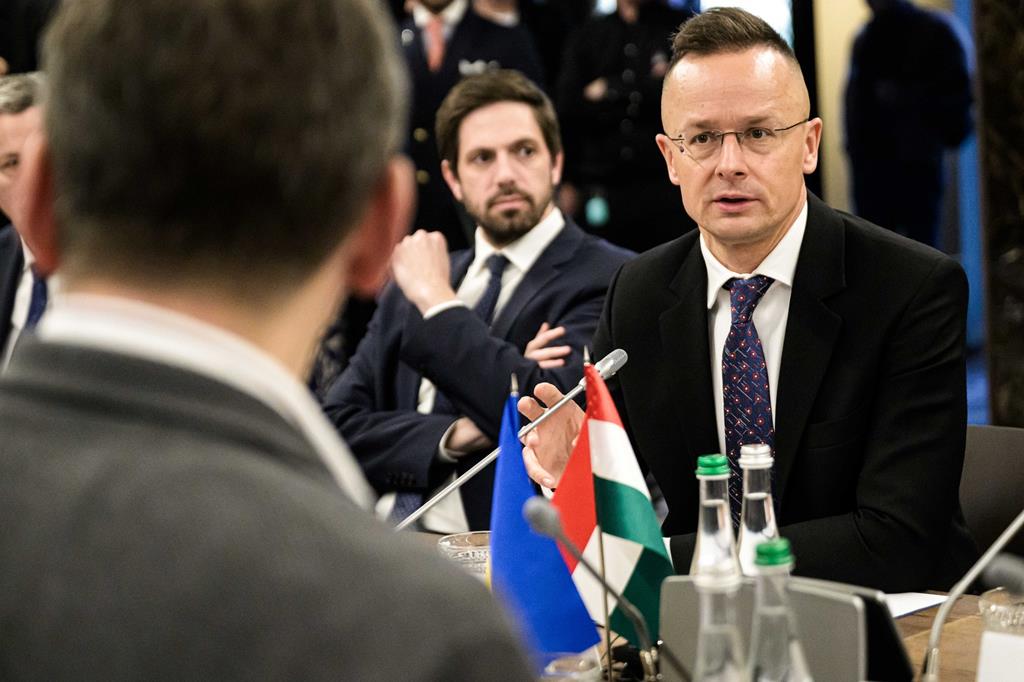FM Szijjártó shared when the Hungarian parliament might vote about Sweden’s NATO accession

Economic cooperation between Hungary and Bahrain is on the cusp of a new chapter, with Hungarian exports and investments there growing apace, Péter Szijjártó, the minister of foreign affairs and trade, said on Tuesday.
Closer ties with the Gulf region could give fresh impetus to the European Union, he said after a meeting of the Hungary-Bahrain Joint Economic Committee, adding that the government supports agreements with the region on free trade and visa exemptions.
Hungary has already has a partial visa exemption agreement with Bahrain, and talks on investment protection are also under way, Szijjártó told press conference.
The European Commission has approved the text of the investment protection agreement, which can be signed soon, the ministry quoted him as saying.
The minister referred to two important chemical industry projects headed by Hungarian oil and gas company MOL, which “have reached the finishing line in Bahrain”. The projects are about raising the efficiency of local natural gas extraction, while rubber bitumen produced by MOL will also be used during construction and infrastructure development.
Also, companies in Bahrain are increasingly making use of Hungarian IT solutions, particularly when it comes to online payment platforms, he added.
Meanwhile, he said Bahrain always promoted the cause of peace and could be counted on in the global fight against terrorism.
Read also:
- Transparency International’s shocking finding about corruption in Hungary – Read more HERE
- Orbán cabinet gets rid of foreign competitors in this skyrocketing economy branch
Szijjártó hailed Bahrain’s signing of the Abraham Accords on normalising ties between Israel and several Arab states, adding that hopefully it would be possible to return to a path of peaceful coexistence.
In response to a question, Szijjarto said holding a Hungarian-Ukrainian summit would only make sense if it could open a new chapter in bilateral relations, adding that the two sides had “a lot of work to do” before then.
“There’s a long way to go before a high-level meeting can take place, but we’re prepared to do this work together,” Szijjártó said, according to a ministry statement.
“We took some important steps yesterday,” he said. “In the coming days and weeks, the intergovernmental working group on education will have to carry out the work that’ll allow the Transcarpathian Hungarian community to regain the rights they enjoyed in 2015.”
“We’re working on making sure that infrastructure developments linking the two countries are successful and that transport developments in the border regions can go ahead,” the minister said. “If these are fully completed, it can lead to a new chapter and a new era … and once this is done, it will make sense to talk about when and where to hold a high-level meeting.”
Concerning this week’s special EU summit, Szijjártó said Hungary still believed the war could not be settled on the battlefield, and a ceasefire and peace talks were needed instead of weapons deliveries.
“And that’s exactly why we don’t think spending billions of euros more on allowing the war to continue is a good proposal,” he said. “But we understand that most EU member states are in a state of war psychosis, so one compromise could be deciding on the financial aid to Ukraine on a yearly basis with the requirement of unanimity.”
As regards the ratification of Sweden’s NATO accession, the minister said there was no sense in convening a special session of parliament for a vote, because parliament will reconvene for its spring session at the end of February, and lawmakers will be able to schedule a vote on the matter then.


To rephrase Mr. Szijjártó … All EU Member states have a pro-Ukraine stance, including military support, except Hungary.
In most non-Hungarian media, we are generally identified as “Putin´s ally”:
https://www.newsweek.com/putin-ally-orban-european-council-hungary-michael-eu-russia-ukraine-1858721
https://www.newsweek.com/viktor-orban-putins-greatest-hope-1784735
Re bias – https://mediabiasfactcheck.com/newsweek/
There must be regular deliveries of thick envelopes going from the Russian embassy in Budapest to Orban’s and Szijjarto’s offices.